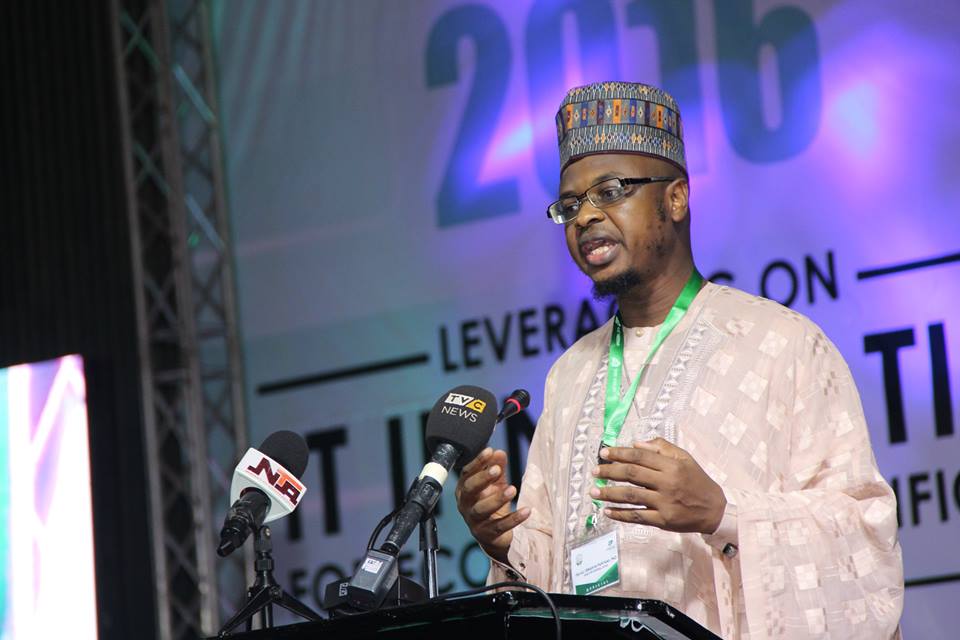GRTech
NITDA clarifies on security measures taken about 2019 general election


The National Information Technology Development Agency (NITDA) has reacted to news circulating online on the possible hijack of the 2019 general elections results by hackers.
The Agency was responding to news ascribing certain statements to the Director General/CEO of NITDA, Dr Isa Ali Ibrahim Pantami, arguing that the quote was out of context.
This statement by the Head, Corporate Affairs and External Relations at NITDA, Mrs Hadiza Umar, reads: “The attention of the National Information Technology Development Agency (NITDA) has been drawn to the news making the rounds in some media outlets ascribing certain statements to Dr Isa Ali Ibrahim Pantami, the Director General/CEO of NITDA.
“The statement, for all intent and purpose, is quoted out of context. The Director General was invited to the ISACA Abuja Chapter event to speak on Security and Privacy: Towards the Development of a Vibrant National IT Governance Structure.
“Due to other commitments, the Director General is out of the country on official assignment and was represented at the event by Dr Usman Gambo Abdullahi, Director IT Infrastructure Solutions.
“The extant portion of the speech is reproduced below for the public’s attention: If proper IT security measures are not put in place, terrorists may disrupt the national elections by hacking into INEC voter register database; they can disrupt the banking system by hacking into and taking over the Bank Verification Number (BVN) platform. They can critically disrupt the national economy by cyber-jacking the Treasury Single Account (TSA) software etc.
“This statement, made at an IT Security Conference, was aimed at explaining the dangerous possibilities of a lax national cybersecurity system.
“However, the way it was carried in the press gave the impression that there was verifiable and imminent threat of terrorist attack on the 2019 general election. This is sensationalism gone awry. Furthermore, the Agency is not aware of any plan to disrupt the 2019 general election but is proactively working with INEC and other stakeholders to ensure the security of election and voting IT Infrastructure.
“NITDA, as the IT Sector Regulator, has prioritized Cybersecurity as one of its seven strategic focus areas. In this regard, public awareness through capacity building workshops for relevant stakeholders in the states has so far been conducted in the North West, South South and North East zones while the train moves on to other zones shortly. As indicated earlier, the Agency has developed a strong partnership with relevant agencies including INEC, CBN, NIMC, NIS, FIRS, CAC, ONSA, etc. for the purpose of effectively securing Nigerian cyberspace.
“Through the efforts of the Agency, the country has formed profitable partnership with global technology giants to improve our cybersecurity readiness. Our Cybersecurity Emergency Readiness and Response Team (CERRT) has also been gathering necessary information and intelligence to counter the activities of devious cybercriminals. The efficient containment strategy of the Agency during the global incidents of WannaCry and Petya virus attacks shows the country’s growing readiness in cybersecurity.
“Our statement at the ISACA Abuja Chapter event is meant to do only one thing – to show the far reaching impact of cybersecurity breach and to challenge the professionals to come up with more options to help us become better prepared as a nation in the days of global cyber warfare. We therefore call on all Nigerians to discard the sensationalism and take the message that cybersecurity is critical to national security.
“The National Information Technology Development Agency (NITDA) is a Federal Government Agency created in April 2001 to implement the Nigerian Information Technology policy and co-ordinate general IT development and regulation in the country. Specifically, Section 6(j) of the Act mandates NITDA to advise the Government on ways of promoting the development of information technology in Nigeria including introducing appropriate information technology legislations and ways of enhancing national security and the vibrancy of the industry”.
-



 News4 days ago
News4 days ago‘You escape, or you die’: African men say Russia duped them into fighting in Ukraine
-



 Hospitality2 days ago
Hospitality2 days agoThe Nature Conservancy and FSC Africa Sign Strategic Partnership to Strengthen Sustainable Forest Management Across Africa
-



 Transport2 days ago
Transport2 days agoAkin Fadeyi Foundation unveils new advocacy campaign to curb road accidents
-



 Energy2 days ago
Energy2 days agoPayment Security Remains Biggest Barrier to Bankable Gas and Power Projects — FirstCap MD






